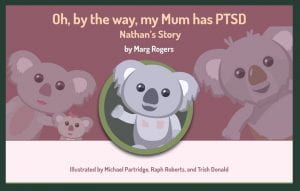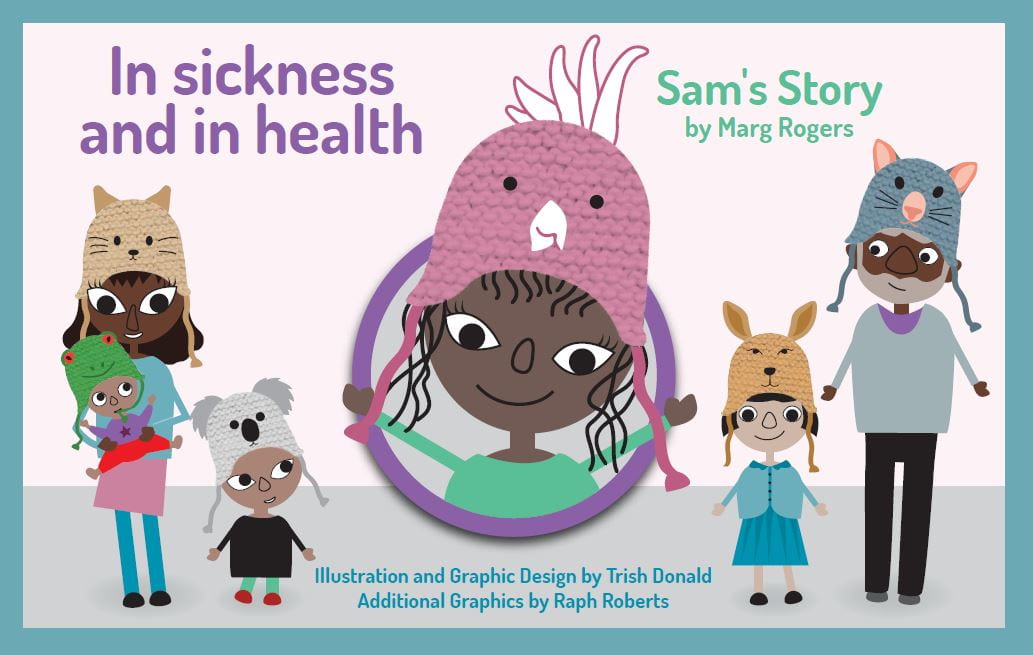This article is written by Dr Marg Rogers, Lecturer in Early Childhood Education at UNE, and discusses her team’s research project that is producing a series of research-based children’s eBooks. Find more preliminary information on this project here.
The establishment of a Royal Commission into Defence and Veteran Suicide is much needed after many years of advocacy from dedicated stakeholders. It is a significant step forward for veterans, defence personnel, family members and the professionals who support them.
While we wait for this important event, it’s time to turn our attention to the children whose parents have given their physical and/or mental health due to their Australian Defence Force service. In 2020, Legacy supported around 424 partners of veterans and 625 children of veterans.
Children of parents who have given their health in service can sometimes show fear responses, and even be hyper-aroused when the affected parent is not in control of themselves. Trauma can be passed on from the parent to the spouse and child. In some instances, children might also witness or over-hear verbal and physical abuse between their parents, or see the results of these episodes. Family members often learn to ‘walk on eggshells’, trying to keep everyone quiet or out of the veteran’s way when they are unwell.
Children who experience instability within the home such as mental health, and grief and loss can be less likely to cope with the everyday changes outside of the home. These children have a higher risk of poor engagement with education, their own mental health conditions and poor attachment. There are several negative impacts upon children’s education due to additional responsibilities at home. This might include falling asleep when they are supposed to be learning, and for school children, not having time to do their homework because of extra family responsibilities.
Adding to the challenges, the social lives of children in these families suffer due to stigma. Bringing a friend home might be something the family avoids when a parent is unwell. Other parents might not let their children go and play at a veteran’s house because of their illness and behaviour, or only allow a visit when the veteran parent is out.

Therefore, there is an urgent need to build children’s understanding of changes that occur in families affected by service-related health and mental health conditions. Once there is a level of understanding, resilience can be built by developing their coping skills. Research by the Harvard University Centre on the Developing Child reports that chronic family stress reduces children’s chance of healthy development but early intervention with effective resources is a key strategy to reduce these risks. Focusing on children is also important for parents because many parents report that they feel better when their children are coping.
Research found that there was very few early childhood Australian resources to assist defence and veteran families. To help address this need, funding was gained from The Ian Potter Foundation and the University of New England. The Early Childhood Defence Program project was established to provide free, online research-based resources for parents, educators, family support workers and social workers, to better assist young children from these families.
These resources were written by the ECDP team and key experts from the Steering Committee. They are currently being test-driven by parents, educators and family support workers through control trials. The resources include 12 free children’s research-based eBooks to provide a way for children to learn about some of the challenges they face in defence and veteran families, providing a springboard for discussion with adults. They also provide a way for children to practice their emotions safely and increase their learning through the accompanying puppets, board games, puzzles and other educational activities.
Three of these eBooks are specifically for children whose parents have a service-related injury, medical condition or mental health condition. Further funding has been gained from the The Association of Graduates in Early Childhood Studies in the form of a Forest Hill Grant. This gives the ECDP team enough funds to make two of these books interactive, deepening the learning opportunities.
The Legacy Club Services 4G Family Support Team is partnering with the ECDP team to form a working group that includes veteran parents and spouses and adult children of veterans who have given their health in service. Together, they will design digitally interactive activities to help build resilience in these vulnerable children.
You can find out more about the project, or register your interest in the control trials by visiting the project website.



An excellent and urgently needed resource.